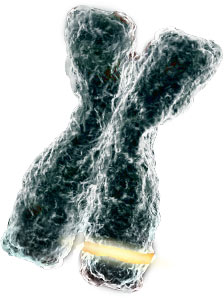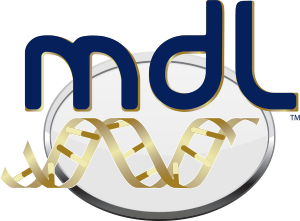About BRCA
Breast cancer is the second most common newly diagnosed cancer and second leading cause of cancer death among women in the United States.
American Cancer Society’s estimates for breast cancer in the United States for 2015 is:
About 231,840
new cases of invasive breast cancer will be diagnosed in women.
About 7 out of 100 women (or 7%) will get breast cancer by age 70; about 1 out of 100 women (or 1%) will get ovarian cancer by age 70. The chance that breast cancer will be responsible for a woman’s death is about 1 in 36 (about 3%).
Breast CancerRisk Factors

- Genetic risk factor(e.g. BRCA1 and BRCA2 mutations)
- Female gender
- Age
- Obesity
- Radiation exposure
- Early menarche
- Late menopause
- Alcohol consumption
- First pregnancy after age 35
- Absence of pregnancies
- HRT in menopause



Epidemiologic studies have clearly established the role of family history as an important risk factor for breast and ovarian cancer. Almost 25 years ago, the first quantitative evidence that breast cancer segregated as an autosomal dominant trait was reported. In the early 1990s, a susceptibility gene BRCA1 for breast cancer was mapped by genetic linkage to the long arm of chromosome 17, and the second gene, BRCA2, was localized to chromosome 13. BRCA1 and BRCA2 are human genes that produce tumor suppressor proteins. These proteins help repair damaged DNA and, therefore, play a role in ensuring the stability of the cell’s genetic material.
Nearly 2,000 distinct mutations and sequence variations in BRCA1 and BRCA2 have already been described. Approximately one in 400 to 800 individuals in the general population may carry a pathogenic germline mutation in BRCA1 or BRCA2. The prevalence of BRCA1/2 mutations in Ashkenazi Jewish population is higher (one in 40 individuals), and mostly presented by the founder-specific mutations: 187delAG, 5385insC and 6174delT. Mutations of BRCA1 and BRCA2 can be highly penetrant (“penetrance is a manifestation of disease in case of mutation carrying”); estimates of penetrance of BRCA mutations range from 41% to 90% lifetime risk for breast cancer.

BRCA1 and BRCA2 mutations prevalence
- 0.2%-0.3% General population (in the US)
- 2% Ashkenazi Jewish population
- 3% Women with breast cancer
- 6% Women with breast cancer onset < age 40
- 10% Women with ovarian cancer
- 20% High-risk families
For women who have mutations in BRCA1 and/or BRCA2 genes, the risk for early breast cancer and ovarian cancer is greatly increased: their life time risk can reach up to 65–80% for breast cancer and 45%-56% for ovarian cancer by the age of 70.
Specific inherited mutations in BRCA1 and BRCA2 have been associated with increased risks of several additional types of cancer. Harmful BRCA1 mutations may increase a woman’s risk of developing fallopian tube cancer, peritoneal cancer, and men’s risk of breast cancer and prostate cancer. Men and women with BRCA1 or BRCA2 mutations may be at increased risk of pancreatic cancer and melanoma.
Indications for BRCA Testing / Benefits
Most experts agree that mutation testing of individuals should be performed when the person’s family and personal history suggests the possible presence of a harmful mutation in BRCA1 or BRCA2 genes.
Hereditary Breast and/or Ovarian Cancer Syndrome Testing Criteria
- Individual from a family with a known pathogenic BRCA1 or BRCA2 variant.
- Personal history of breast cancer AND one or more of the following:
- Diagnosed at ≤ 45 years.
- Diagnosed at ≤ 50 years with:
- An additional breast cancer primary
- At least one close blood relative with breast cancer, at any age.
- At least one close relative with pancreatic cancer.
- At least one relative with prostate cancer (Gleason score ≥ 7).
- An unknown or limited family history.
- Diagnosed at ≤ 60 with triple-negative breast cancer
- Diagnosed at any age with:
- At least two close blood relatives with breast, pancreatic or prostate cancer (Gleason score ≥ 7), at any age.
- At least one close blood relative with breast cancer diagnosed at ≤ 50 years.
- At least one close blood relative with ovarian carcinoma.
- A close male blood relative with breast cancer.
- Ashkenazi Jewish ancestry or another ethnicity associated with a higher variant frequency.
- Personal history of ovarian carcinoma.
- Personal history of male breast cancer.
- Personal history of prostate cancer (Gleason score ≥ 7) at any age and at least one close blood relative with:
- Ovarian carcinoma at any age or;
- Breast cancer diagnosed at ≤ 50 years or;
- Two relatives with breast, pancreatic, or prostate cancer (Gleason score ≥ 7), at any age.
- Personal history of pancreatic cancer at any age and at least one close blood relative with:
- Ovarian carcinoma at any age or;
- Breast cancer diagnosed at ≤ 50 years or;
- Two relatives with breast, pancreatic, or prostate cancer (Gleason score ≥ 7), at any age.
- Personal history of pancreatic cancer and Ashkenazi Jewish ancestry.
- Personal history of BRCA1 or BRCA2 mutation detected by tumor profiling in the absence of germline analysis.
- Family history only:
- First- or second-degree blood relative meeting any of the above criteria.
- Third-degree blood relative who has breast cancer and/or ovarian carcinoma and who has at least two close blood relatives with breast cancer (at least one with breast cancer diagnosed at ≤50 years) and/or ovarian carcinoma.
- (National Comprehensive Cancer Network (NCCN) Guidelines Version 2.2017, www.nccn.org)
Patients who have received an allogeneic bone marrow transplant should not have molecular testing via blood or buccal swabs due to unreliable test results from contamination by donor DNA.
Testing of Ashkenazi Jewish founder-specific mutation(s) should be performed first. Full sequencing may be considered if ancestry also includes non-Ashkenazi Jewish relatives or other hereditary breast and/or ovarian cancer syndrome criteria is met.
Some individual insurers may have their own specific criteria for BRCA testing, please check your insurance company policy.
Benefits of BRCA Testing
Genetic testing for BRCA1 and BRCA2 mutations has been available to the public since 1996. Results of the BRCA testing enable to provide an individualized medical management for the high risk population.

- Identify at-risk individuals and family members, counsel on the underlying causes of the pattern of cancers in the family. Exclude family members with decreased risk.
- Perform the enhanced screening for mutation carriers and family members to significantly improve medical outcomes: cancer surveillance and mortality. Reduce the medical costs through earlier diagnosis and treatment of cancers.
- Optimize cancer risk assessment, prevention, diagnosis and treatment of cancers in BRCA mutation carriers. Avoid unnecessary tests and procedures for family members.
- Make medical and lifestyle decisions based on genetic background.
- Make proactive decisions regarding risk-reducing surgical treatment, preventive chemotherapy or fertility preservation for high-risk population.
Billing Information / Codes
Hereditary cancer genetic testing determined to be medically necessary by physician or genetic counselor is usually reimbursed by health insurance. Medicare, Medicaid and some insurance carriers may not pay for this test unless specific criteria are met.
As a national reference laboratory, MDL participates in a large number of health care managed care contracts. Some notable national contracts include Aetna, Amerigroup, Centene, Cigna, Coventry Health Care (First Health), Coventry Regional Contracts, Health Smart, the Interplan Health Group, Molina Healthcare Networks, MultiPlan, Stratose, Tricare, UnitedHealthcare, USA Managed Care Organization, Inc, Wellcare, and Windsor Health Plan (which has recently been acquired by Wellcare). We do participate in Medicare and are also enrolled in 45 individual state Medcaid programs. MDL will contact all patients prior to performing this genetic test if the personal total financial responsibility will exceed $149.00 for any reason including co-insurance, co-payments, deductibles or non-covered services.
MDL offers financial assistance for those who need help with the costs associated with BRCA testing.
All potentially eligible patients must complete an application for financial assistance. If insured, patients must meet their insurance provider’s requirements for this testing such as obtaining preauthorization for testing. For uninsured and underinsured patients that meet or fall below the federal poverty level as defined by the U.S. Department of Health and Human Services (please, find all information at http://aspe.hhs.gov/poverty/14poverty.cfm), testing is provided at discount rate which will be determined on individual basis.
- MDL does currently offer interest free payment plans. For BRCA testing, payment can be spread out over a maximum period of one year.
- Medicare patients are required to complete an Advance Beneficiary Notice.
- We offer a Complimentary Family Study Program for selected family members of patients with Variant Uncertain Significance (VUS). This Program operates on a case-by-case basis and required the detailed review of the patient’s family history and clinical findings by genetic counselor and our professional team prior to approval for testing.
| Test Code | CPT Codes | Test Name |
| 1241 | 81211, 81213, 81321, 81405x2, 81406x2, 81408, 81479x2, 81292, 81294, 81295, 81297, 81298. 81300, 81317, 81319, 81403 | Breast Cancer High Risk Extended Panel Plus: 14 genes |
| 1235 | 81211, 81213, 81321, 81405x2 81406x2, 81408, 81479x2 | Comprehensive Herditary Breast and Gynecologic Cancer Panel: 18 genes |
| 1221 | 81211, 81213 | BRCA 1/2: Comprehensive BRCA Analysis by Gene Sequencing with Deletion/Duplication Analysis |
| 1240 | 81321, 81405x2, 81406x2, 81408, 81479x2 | Breast Cancer High Risk Extended Panel (No BRCA1, BRCA2): 12 genes |
| 1222 | 81212 | BRCA 1/2: Ashkenazi Jewish 3-site Mutation Analysis |
| 1223 | 81212 | BRCA 1/2: Ashkenazi Jewish 3-site Mutation Analysis (Reflex to 1221 if negative) |
| 1236 | 81212 | BRCA 1/2: Ashkenazi Jewish 3-site Mutation Analysis (Reflex to 1235 if negative) |
| 1243 | 81212 | BRCA 1/2: Ashkenazi Jewish 3-site Mutation Analysis (Reflex to Comprehensive Hereditary Breast and Gynecologic Cancer Panel) |
| 1224 | 81215, 81217 | BRCA 1 or BRCA 2 Specific Site Analysis |
Instructions for AETNA patients
Aetna requires a prior authorization before BRCA testing can be provided. Please, follow instructions:
- Obtain the “Aetna BRCA Prior Authorization Form” here
- Electronically complete this Form.
- Print and ensure the ordering physician signs the Form.
- Include the completed Aetna Form with the patient specimen and completed MDL Requisition Form.
- AETNA does not reimburse for duplication/deletion variants analysis and breast cancer extended panel analysis.


